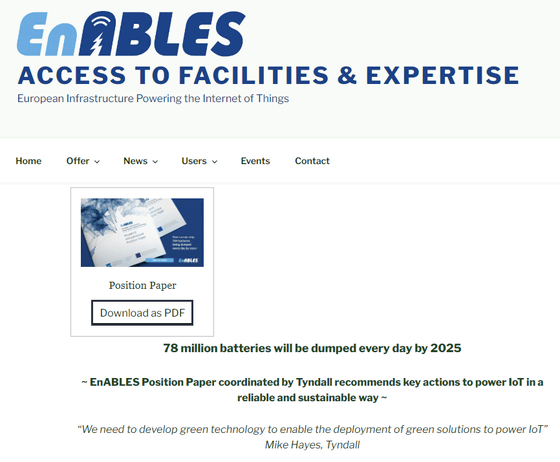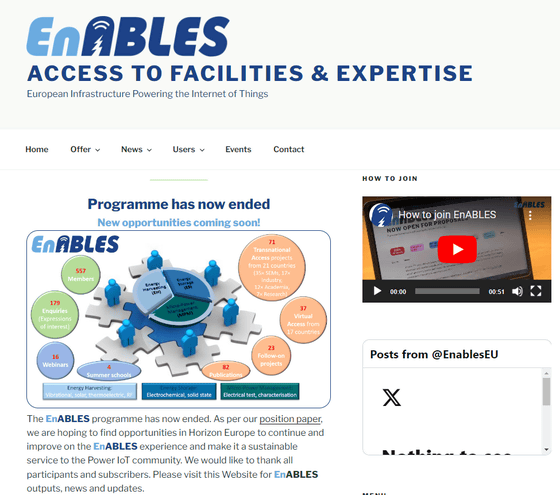A research group has suggested that 78 million batteries will be discarded every day by 2025

The number of IoT devices in the world, including smart home appliances, smartphones, and sensors for them, is estimated to exceed 1 trillion by 2025, but batteries have a short lifespan compared to the useful life of the products. If batteries are replaced once every few years, the number of discarded batteries will reach 78 million per day, so a more sustainable method is needed, the research group 'EnABLES' has proposed.
Position Paper – Access to facilities & expertise

Research Infrastructure Position Paper
(PDF file)

Up to 78 million batteries will be discarded daily by 2025, researchers warn
'EnABLES' is a research group centered on the Tyndall National Laboratory in Ireland and involving several universities. According to Mike Hayes, head of ICT at Tyndall National Laboratory and project coordinator for EnABLES, IoT will be used for a variety of purposes around the world, from tackling climate emergencies to managing people's health, but to truly benefit society, medium- to long-term scientific and technological innovation is needed to address the 'disparity' in power supply to the increasing number of IoT devices.
Specifically, 'Power IoT' measures have been proposed, which would collect weak environmental energy such as light, heat, and vibration and convert it into electricity, minimizing energy consumption by sensors. For example, a solar panel half the size of a credit card could power a temperature and humidity sensor in an office indefinitely.
'Thanks to EnABLES and its partners, the EU has already established itself as a leader in science and technology in this field. Overcoming the challenges of Power IoT will unleash the potential of IoT, contribute to the objectives of the European Green Deal and deliver significant economic and societal benefits. IoT offers green solutions, but they need to be more sustainable,' said Dr. Yorgos Fagus, Head of EU Programmes at Tyndall National Laboratory.
Mr Hayes added, 'The EU and Ireland have an opportunity to lead the future development of technologies to overcome the challenges of making the IoT sustainable. But as we have demonstrated with EnABLES, this needs to be done collaboratively across sectors.'
These recommendations were made in a report published in 2021, with EnABLES completing the program in 2022.
Access to facilities & expertise – European Infrastructure Powering the Internet of Things
https://www.enables-project.eu/

Related Posts:
in Note, Posted by logc_nt







